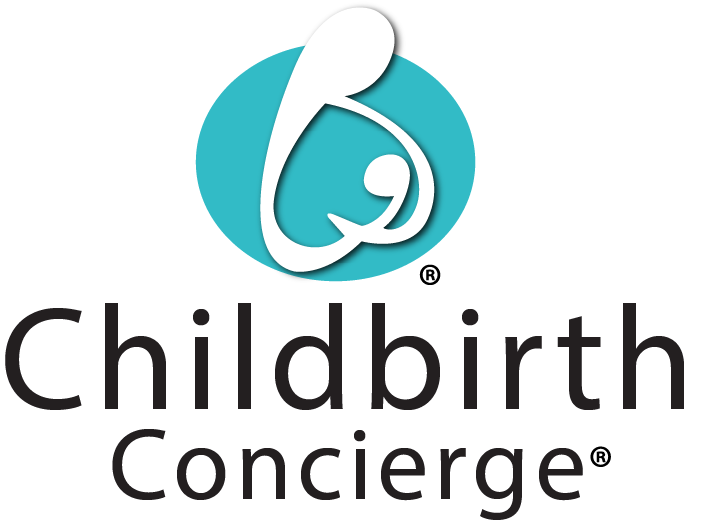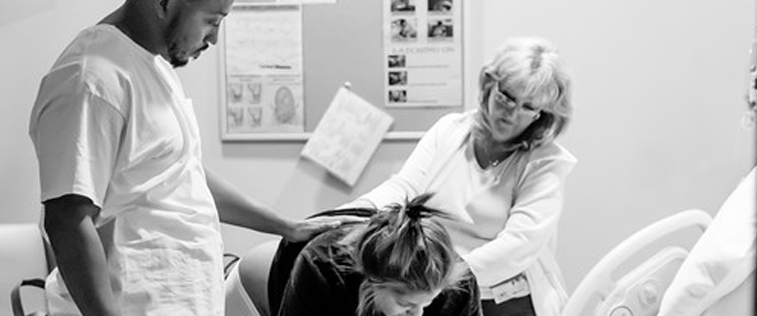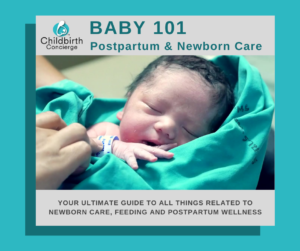
by Kathy Bradley | Feb 7, 2019 | Breastfeeding
Breastfeeding-Feed Your Baby Organic
We all have heard that breastfeeding your baby is best! But did you know that breastmilk offers 100% of what your baby needs, and that the American Academy of Pediatrics recommends exclusive breastfeeding for the first six months of life?
The benefits for babies that get their mom’s milk include, higher IQs, reduction in childhood cancers, obesity, diabetes, ear infections, and access to the mother immunities to mention a few. The benefits don’t stop for the baby but are extended to their moms as well including reduction in weight loss gained during pregnancy, female cancers, heart disease, osteoporosis and many more.
Do you know what the number one reason women give up breast feeding?
A) Lack of support
B) Too painful
C) They don’t believe they have enough milk
Most people think that the answer is “B-Too much pain” but the actual answer is “C- They don’t believe they have enough milk for baby”.
One of the most beneficial things you can do is go to a class and learn HOW to tell baby is getting. For the new parents it is pretty easy and doesn’t require a medical degree. You simply need to count the number of wet and dirty (urine and stool) diapers in a 24 hour period, and make sure it is the minimum number accepted for the age of your new baby. For example a 7 day old baby should have 6-8 wet diapers and 3-6 poop/dirty diapers. The basic concept is if breast milk is going in then there will be output in the diapers. kellymom.com is an excellent evidence based website for breastfeeding information.
Just as your body is designed to grow your baby and give birth, your body is designed to make and provide for your baby. Breastfeeding is the natural and most healthy way to feed your baby. The more milk that is removed from the breast the more milk the breast will produce. Getting support for family members is shown to help the breastfeeding relationship last longer. Also consider who you get information from (is it trusted and evidence based) and surround yourself with friends who have successfully breastfed their babies.
Many women accept that breastfeeding will be painful, but this is a misconception. Breastfeeding should not be painful to the point where you are crying, or dreading the next feeding. It is not normal for your nipples to be cracked and bleeding. If you experience pain or have concerns, getting the correct help from a lactation professional is crucial in helping you turn the situation around. Your hospital will provide breastfeeding help while you are there, and most offer outpatient services once you’re discharged. Also check with your pediatric office to see who they recommend. Some Board Certified Lactation Consults offer home visits, which are nice as they can help you in the comfort of your home where you are nursing all the time.
In January 2013 our current governmental administration mandated that insurance companies provide for lactation consults and pumping supplies. You are encouraged to call your insurance provider while pregnant to see what they exactly provide. If you are planning to return to work and will be pumping it is important to invest in a good pump. Poorly performing equipment can result in poor milk removal. So this is one area where better equipment is worth it.
Price ranges to expect in the Orlando are:
Office Consults range from $75-$120
Home Visits $120-$175
Double Pump Equipment (recommended for those returning to work) $180-$395
Key points to know:
Breastfeeding is normal and the perfect food for baby, water supplementation is not needed
Breastfeeding should NOT be painful
Milk removal (either by baby or pump) equals milk production “DEMAND & SUPPLY”
Know your baby’s diaper output to make sure it is enough
Know where to call or go for help
Know YOU ARE NOT ALONE~

by Kathy Bradley | Feb 3, 2019 | Breastfeeding
Breastfeeding
Not all women enjoy breastfeeding! There I said it and as much as I wish it were not true, it is! As an IBCLC I have had many women over the last 25 years confide in me that they were feeding their baby breastmilk because they knew it was the best nutrition for baby but deep inside they really didn’t enjoy it.
Our media has done a great job in creating the facade of the perfect wedding, the perfect pregnancy and the perfect baby. No doubt most Americans now understand that breastmilk is the perfect nutrition for baby, but some mom struggle with feeling like the perfect mom when they really are frustrated at times with breastfeeding. Whew that is a lot of “PERFECTS”! What does perfect really look like anyway?
If you happen to fit the above mentioned description, take a deep breath and slowly exhale. With that exhale and release all the guilt that has been eating you alive. There is no perfect breastfeeding “feeling”. True there are some moms that absolutely love breastfeeding, and that mom might be your best friend, but don’t compare yourself. Pat yourself on the back that you have made it this far…motherhood is not for the weary. Studies show that a baby that receives his mother’s milk just one time out performs, so to speak, a baby the never received his moms milk but got formula.
So for all you moms out there that at times feel like giving up, I say “welcome to the world of motherhood, where you will spend the next 18 years wondering what you were thinking when you had this baby and at the same time find it impossible to imagine life with out him.

by Kathy Bradley | Feb 3, 2019 | Doulas
Doulas
I remember being so excited receiving my first check as a doula, known back then as a childbirth assistant. It was 1990 and in the previous years of “doing this work” the word doula wasn’t even in my vocabulary. During my training I was willing to pay someone to let me be by their side. Over the years and as I gained more experience my fees increased. To hear some say that doula services run $2,000.00-$3,000 in New York or California blows my mind. That’s along way from my mere $150.00 from my first official paid client in Florida.
For someone who has spent years training and developing people in this profession, the growth is exciting! And as with growth comes growing pains. Part of the pain is deciding what is a fare price in today’s market. Many factors go into setting a service fee; what one will provide, average time spent with a client in order to gauge an hourly wage, experience and skill level, as well as what the market will bare.
I consider myself old-fashion when it comes to some things, and I still believe in tenure. Not that long ago it was considered noble to spend many years with a company. Loyalty was rewarded with financial gain and title. It was expected that you put your hours in and did the time to earn experience and respect, it wasn’t given over night. Today it seems common for young professionals to jockey around from company to company, and there seems to be a lot of “I don’t really want to work hard but I want a pay check” mentality! I am always internally challenged when I see a new doula charging more than I do with 29 yrs under my belt. I hold the belief, whether right or not, that I would rather be busier and serve more women than price myself so high that I only work every now and then.
So what is the correct fee for a doula to charge? Since we still live in the land of the free and where free commerce is alive and well, the answer is; there is no correct answer. It boils down to this, in my opinion, it is what you are willing to pay is what you WILL pay. One thing to consider is that when you are hiring a doula you in essence are hiring her years experience and her ability to articulate that past experience appropriately during her work with you.
I have seen many new trainees that naturally have “it” and instinctively are supportive, they just simply lack the years experience of working in different settings, with different birth situations, and interacting with medical personal among many things. I always say if you can not afford a certified doula, a student with a good training is still supportive.
Here are some primary things to consider and words of wisdom before hiring a doula service:
1. First and foremost do your homework about this person or company.
2. Do they come highly recommended?
3. Always interview whether in person, phone or virtually.
4. Compare the fees of other doula and their experience.
5. Does this doula have a specialty?
Lastly, trust your gut intuition, it never fails you. If you feel comfortable and relieved to have this doula work with you then go for it after all it is your birth, and you know what you are willing to pay~

by Kathy Bradley | Jan 19, 2019 | Childbirth Education
Sometimes when people hear that I am a clinical hypnotist specializing in women’s health, they will physically take a step back from me as if the next words out my mouth will render them helpless to my whims. It’s a bit sad to me that many people are frightened of HypnoBirthing and hypnosis. There are numerous misconceptions, myths, and untruths surrounding “it” and birth.And then there is the myth; Childbirth is always painful, is just not true.
Trust me, if that were possible, my children would automatically keep their rooms immaculate, wash the dishes, and clean the toilet. Yet, rarely do I ever find someone having the same reaction to television, which is the biggest hypnotist out there. When your preschooler informs you need to buy a particular brand of razor because it will make your legs smooth, beautiful and free from cuts , that there my friends , is straight up suggestion. Advertisers play on our emotions and tap into our hopes, fears, and dreams in order to sell us cars, convince us we can slow the aging process, and inform us that we are now at that age we should discuss taking a certain medication with our physician. The list goes on and on. Advertisers and the media understand that when something is vividly imagined with a lot of emotion surrounding it ( Will I be accepted? Will I look desirable to the opposite sex? Am I vulnerable to that condition?), that our subconscious mind has the same physiological and hormonal response as if this exact situation is actually happening to us. This is simple to do with powerful images, persuasive scripting or voice over and dramatic music; and we respond accordingly.
Through movies, television shows, social media, and advertising, we are bombarded with messages about how we should look, what we should wear, what we should be eating or not eating, what is acceptable behavior, and how safe the world is around us. Media exposes us to life situations we may have not encountered yet, models how others respond to the world around us, and forces us to constantly compare ourselves to others. These values and beliefs shape and shift through the years, and are colored by the person or entity presenting them. (Simply watching movies and television shows from previous decades illustrates this.) All of this powerfully influences the beliefs about our selves, our capabilities, self image, and worthiness.
Media further shapes our beliefs about our ability to conceive, what pregnancy entails, what giving birth will be like, and what the expectations are for us a mother, as a father. All of the messages are powerful; and some are beneficial, while the majority are down right detrimental. There are the obvious movies and television shows depicting a birthing woman screaming throughout labor and birth as her husband or partner fumbles runs around helpless and feeling inept. The documentary style birth shows typically have dramatic music and a scripted narrative. Such narrative can include:
“Will this normally cool, collected mother be able to keep it together? The story of a painful delivery.”
“The pain is really insane.”
“The pain is really unbearable at this point.”
A beautiful, unmedicated, natural hospital birth is turned into what the narrators would lead you to believe was an act absolute torture. The narrative completely overlooks the fact that after her baby daughter is placed on her belly, the mother exclaims, “I am feeling absolute bliss!”
While many people may think that is just the media wanting to sell their programs through drama and fear, that fact isn’t typically foremost in a pregnant woman’s mind as she watches these shows looking for guidance and education. Most importantly, we are in a relaxed state of everyday hypnosis while engrossed in a television show. All of the sounds, images, and opinions manipulated by negative, fearful narratives are embedded directly into the subconscious mind.
The advertising media even influences our doctors and caregivers regarding the safety and efficacy medications and products. Smoking cigarettes was once touted to women as a way to stay slim. Smoking was recommended during pregnancy to stay relaxed and calm, and ensure a smaller baby and a smooth delivery. (My own mother was told by her physician to start smoking again during her pregnancy with me because she was gaining too much weight in her pregnancy. She gained 21 pounds total.) Ads further sold the calming and relaxing benefits of smoking cigarettes to mothers as a way to prevent losing your patience or snapping at your child. In the 1950s, marketers sold the wonders of DES (diethylstilbestrol), a drug used from 1938 to 1971 that claimed to prevent abortion, miscarriage, and premature labor. The ads featured photos of alleged chubby, healthy DES babies. Pharmaceutical sales representatives urged doctors to use DES for irregular periods, painful periods, morning sickness, and high risk pregnancies. It became common to use it in all pregnancies and was even placed in some prenatal vitamins. Even though DES was banned from use in poultry in 1959 and solid evidence proved that the drug was not effective, it continued to be given to pregnant women for years after. Tragically, DES is linked to a rare and deadly form of vaginal cancer, malformed female reproductive organs, and infertility in the daughters and sons whose mothers were given the medication. Around this same time formula was touted as superior to breastmilk, and it has taken a lot of strong campaigning to once again normalize breastfeeding. Formula reps are still heavily pressured to get their brand of formula into the hospitals, doctor’s offices and, ultimately, into a new mother’s hands. Reps are often told to encourage the hospital staff to help the poor, exhausted mothers rest by giving the baby a bottle feeding.
Just like formula feeding, epidurals are now a cultural norm. Both have their place and can be a godsend for the mother that needs them. However, the issue is that instead of what is physiologically normal being our cultural norm, what is common becomes the norm at the expense of mothers and babies. Women are now often shamed and ridiculed for wanting an unmedicated birth. Sadly, when women share with their physician that they would like to give birth naturally, she is often told, “Well, you can try to give birth without an epidural, but I don’t think you will be able to do it.” This is known as a prestige suggestion in hypnosis, and it can completely undermine a woman’s belief in herself.
The subconscious mind is our protector. Its role is to keep us safe, to help us feel loved and accepted. When a woman’s subconscious is programmed with negative beliefs about pregnancy and childbirth, it causes her to doubt herself, her body, and her ability to give birth to and mother her child. If it is her first pregnancy, her subconscious does not have any previous personal experience to refer to so it references what she has been told by others or watched on television or in movies. If everything her subconscious is programmed with is scary and disempowering, she will go into fright or flight in order to protect herself and her baby. This makes for stressful pregnancy and more painful, frightening birth experience for them both. The beauty of HypnoBirthing is the ability to ‘de-hypnotize’ these negative messages and beliefs that are constantly coming at pregnant mothers in all different directions from the media, caregivers, friends, family, and even strangers. We help mothers to discover her own inner wisdom and define her own beliefs about pregnancy, birth, and motherhood.
Michelle Smith, CHt has been a pioneer in bringing HypnoBirthing® and HypnoBirthing® Fertility to the Orlando and Kissimmee-St.Cloud Florida area, and has been facilitating classes since early 2003. She was one of the first in the nation to certify as a Hypnobabies Instructor (number 012) and has studied multiple birth/fertility hypnosis programs. Michelle has maintained a practice in the field of hypnosis and regression therapy for over a decade, and she provides you the confidence of working with a seasoned practitioner who has facilitated hundreds of classes and hypnosis sessions, as well as the experience inherent in attending over 500 births as a midwifery birth assistant and doula. You can reach Michelle at [email protected]








